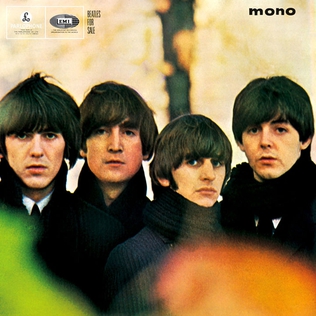
Beatles for Sale is the fourth studio album by the English rock band the Beatles. It was released on 4 December 1964 in the United Kingdom on EMI's Parlophone label. The album marked a departure from the upbeat tone that had characterised the Beatles' previous work, partly due to the band's exhaustion after a series of tours that had established them as a worldwide phenomenon in 1964. Beatles for Sale was not widely available in the US until 1987, when the Beatles' catalogue was standardised for release on CD. Instead, eight of the album's fourteen tracks appeared on Capitol Records' concurrent release, Beatles '65, issued in North America only.
Garage rock is a raw and energetic style of rock and roll that flourished in the mid-1960s, most notably in the United States and Canada, and has experienced a series of subsequent revivals. The style is characterized by basic chord structures played on electric guitars and other instruments, sometimes distorted through a fuzzbox, as well as often unsophisticated and occasionally aggressive lyrics and delivery. Its name derives from the perception that groups were often made up of young amateurs who rehearsed in the family garage, although many were professional.
The Beatles' bootleg recordings are recordings of performances by the Beatles that have attained some level of public circulation without being available as a legal release. The term most often refers to audio recordings, but also includes video performances. Starting with vinyl releases in the 1970s, through CD issues in the late 1980s, and continuing with digital downloads starting in the mid 1990s, the Beatles have been, and continue to be, among the most bootlegged artists.
The Merseybeats are an English band that emerged from the Liverpool Merseybeat scene in the early 1960s, performing at the Cavern Club along with the Beatles, Gerry and the Pacemakers, and other similar artists.
Beat music, British beat, or Merseybeat is a British popular music genre that developed, particularly in and around Liverpool, in the late 1950s and early 1960s. The genre melded influences from British and American rock and roll, rhythm and blues, skiffle, traditional pop and music hall. It rose to mainstream popularity in the UK and Europe by 1963 before spreading to North America in 1964 with the British Invasion. The beat style had a significant impact on popular music and youth culture, from 1960s movements such as garage rock, folk rock and psychedelic music.

The Monks, referred to by the name monks on record sleeves, were an American rock band formed in Gelnhausen, West Germany, in 1964. Assembled by five American GIs stationed in the country, the group grew tired of the traditional format of rock, which motivated them to forge a highly experimental style characterized by an emphasis on rhythm over melody, augmented by the heavy use of distortion. The band's unconventional blend of shrill vocals, confrontational lyrics, feedback, and guitarist David Day's six-string banjo baffled audiences, but music historians have since identified the Monks as one of the most innovative rock bands of their time. The band's lyrics often voiced objection to the Vietnam War and social alienation, prefiguring the harsh and blunt social and political commentary of the punk rock movement. The band's appearance was considered as shocking as their music, as they attempted to mimic the look of Catholic monks by wearing black habits with cinctures symbolically tied around their necks, and hair worn in partially shaved tonsures.
Psychedelic folk is a loosely defined form of psychedelia that originated in the 1960s. It retains the largely acoustic instrumentation of folk, but adds musical elements common to psychedelic music.

Aynsley Thomas Dunbar is an English drummer. He has worked with John Mayall, Frank Zappa, Jeff Beck, Journey, Jefferson Starship, Nils Lofgren, Eric Burdon, Shuggie Otis, Ian Hunter, Lou Reed, David Bowie, Mick Ronson, Whitesnake, Pat Travers, Sammy Hagar, Michael Schenker, UFO, Michael Chapman, Jake E. Lee, Leslie West, Kathi McDonald, Keith Emerson, Mike Onesko, Herbie Mann and Flo & Eddie. Dunbar was inducted into the Rock and Roll Hall of Fame as a member of Journey in 2017.

Live! at the Star-Club in Hamburg, Germany; 1962 is a double album featuring live performances by the English rock band the Beatles, recorded in late December 1962 at the Star-Club during their final Hamburg residency. The album was released in 1977 in two different versions, comprising a total of 30 songs by the Beatles.

"Misery" is a song by the English rock band the Beatles from their 1963 debut album Please Please Me. It was co-written by John Lennon and Paul McCartney. According to Lennon, "It was kind of a John song more than a Paul song, but it was written together." McCartney was to say: "I don't think either one of us dominated on that one, it was just a hacking job."
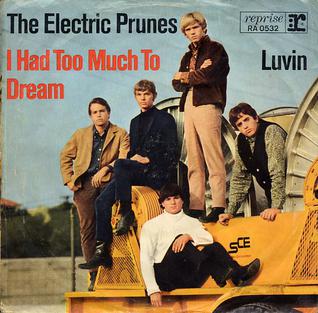
"I Had Too Much to Dream (Last Night)" is a song written with music by Annette Tucker and lyrics by Nancie Mantz, which was recorded in late 1966 by the garage rock band The Electric Prunes. Released as the band's second single, it reached number 49 in the UK and peaked at number 11 on the Billboard Hot 100 the week ending February 11, 1967.

Mindrocker is an extensive series of compilation albums that was produced by the German record label Line Records in the 1980s. The complete series compacted nearly 200 songs of rare, and obscure material primarily from American garage and psychedelic rock musical artists that were originally recorded in the 1960s, and previously made available to only a handful of collectors. It was organized by record producer Hans-Hermann Pohle, named after a single by California band, Fenwyck, and initially distributed in Germany. The first volume was released in 1981 and by 1986 the thirteenth and final installment of the series was issued.

The Remains is the debut album by the American garage rock band the Remains, and was released on Epic Records in September 1966. Though the album was largely overlooked at the time of its original release, The Remains has since received recognition as one of the more cohesive efforts of the era.

The Guilloteens were an American garage rock band formed in Memphis, Tennessee in 1964. Much of the band's musical stance was distinguished for incorporating their homegrown Memphis influences with a hard-edged sound. Among the group's singles, the Guilloteens are most-known for their regional hit "I Don't Believe" and "Hey You". Although national success eluded the group, they are now considered one of the more accomplished garage rock acts to emerge from the era.
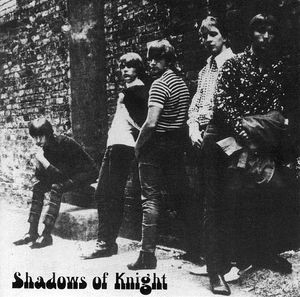
Raw 'n' Alive at the Cellar, Chicago 1966! is a live album by the American garage rock band the Shadows of Knight, and was released on Sundazed Records in 1992. The album consists of recordings from the band's appearance at the Cellar in Arlington Heights, Illinois in December 1966. Although the tapes were never anticipated to be released publicly, Raw 'n' Alive at the Cellar is commended for its good sound quality, and represents one of the better live concert recordings to emerge from the garage rock era.
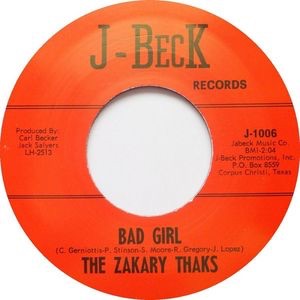
"Bad Girl" is a song by the American garage rock band the Zakary Thaks, written by the whole group—Chris Gerniottis, Pete Stinson, Stan Moore, Rex Gregory, and John Lopez—and was first released for the band's debut single on J-Beck Records in July 1966. The song was an immensely successful regional hit in Texas, precipitating "Bad Girl"'s national release on Mercury Records later in the year. Since its initial distribution, the tune has received further recognition for its appearance on several compilation albums.
"Etcetera" is an unreleased song recorded as a demo by Paul McCartney on 20 August 1968, during a session for The Beatles.
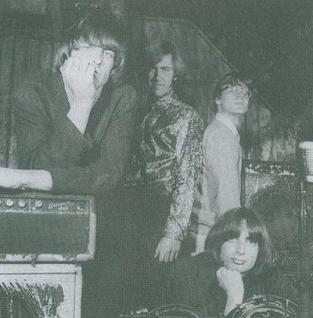
The Final Solution was an American garage rock band formed in San Francisco, California, in 1965. An early group in the development of what later became known as the San Francisco Sound, the Final Solution contradicted its contemporaries with their controversial name and grim lyrics composed by lead guitarist Ernie Fosselius and bassist Bob Knickerbocker. Although the group never released any recordings in their career, the band was pivotal in the San Francisco's live music scene. A recording of the Final Solution performing at the Matrix in 1966 exists and is available, particularly "So Long Goodbye", which appears on Pebbles, Volume 22.
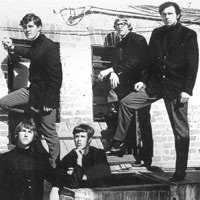
The E-Types were an American garage rock band formed in Salinas, California, in 1965. The group's sound combined striking three-part vocal harmonies and Jody Wence's jangling keyboards, with professional production techniques that were outside of the garage band norm. During the E-Types' recording career, the band released five singles, including their most notable record "Put the Clock Back on the Wall". Although the band was short-lived, the E-Types had a profound presence in San Francisco's live scene and, years after their disbandment, the group recorded a reunion album.
Anthony "Tony" Crane MBE is an English musician, who is best known as the co-founder of the Merseybeats. Tony has toured with the Merseybeats since its inception in 1961.













